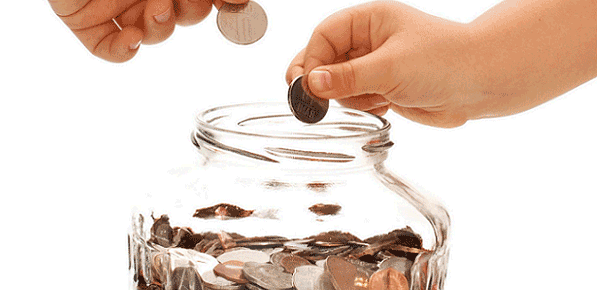
All the “get rich” advice in the world revolves around saving your money. The problem with such advice is that it often misses out the point that saving money will merely increase your chances of getting rich through other platforms, such as investing.
To build wealth, you must first think of ways to make your money grow. Read on to find out why having a golden egg is not as good as having a golden goose:
1. It doesn’t combat the rising inflation
Although the terms “saving” and "investing” are often used interchangeably, they do not actually mean the same thing.
Savings, by definition, involves the preservation of money from physical loss. Methods include stashing your hard-earned savings into a fixed deposit or under your grandfather’s pillow.
Investing, on the other hand, is taking some of your money and buying things that might increase in value, such as stocks, property, bonds, or unit trusts, with the aim of protecting your money from losing its value, and also making your money grow.
While saving money is a good habit, it does not necessarily protect you from market conditions such as economic downturns or soaring inflation rates, which might cause the value of your savings to diminish over time. Saving money merely creates opportunity while investing is the one way to capitalize on that opportunity to potentially create wealth.
Consider this: Malaysian annual inflation rate accelerated to 2.8% in October 2014 from 2.6% in September, driven by higher food, transport, and housing prices. What this means is, the RM1,000 you save today may be worth just half of its value in 15 years!
To beat inflation and maintain your current standard of living, you would need to make your money grow at a rate that is equal to or higher than the current inflation rates to rake in a sufficient amount for retirement.
Some ways to accomplish this is by putting money into investments like property, unit trusts, Real Estate Investment Trust (REITs), and private retirement schemes (PRS).
2. It’ll take longer to reach your goal
Most people have the same financial goals: to live a financially comfortable life, provide for their loved ones, and have a stable retirement income in their golden years. To achieve these, certain short-term and long-term financial goals must be achieved.
Living paycheque to paycheque does not help, and putting away money aimlessly will only get you so far. Investment can help you systematically plan for these goals, without putting away all your money into savings.
However, everyone has a different investor profile with diverse goals and needs. Safety of capital, income range, age, and holding power are some factors to consider when deciding on the type of investment to put your money in.
If you’re 55 and nearing retirement, and are hoping to stretch your retirement fund, you might want to play it safe and put more assets in lower-risk investments, such as unit trusts or savings bonds.
However, if you’re 25 and are saving for your first home, wedding, and also your retirement fund, you can afford to roll the dice a little bit more and put more of your money in higher-risk investments like stocks. Being young gives you a longer time horizon, which allows you to weather and ride out the market’s highs and lows.
At the end of the day, it is always worth having a good reason to start something. Writing down your financial goals will help set you in the right direction and help you stay on track.
3. It is a high risk
Not investing your money is riskier than when you do. By just saving your money, you are at risk of losing the value of your money due to inflation, and also losing the opportunity of growing that money.
It’s never wise to put all your eggs into the same basket, or worse, to put all your eggs in a basket under your bed. Putting all your funds in a low-interest savings account is akin to stashing your money under your mattress.
If you put RM5,000 in a fixed deposit account with a rate of 3.75%, you will earn RM938 in five years. However, if you put the same amount in a unit trust with an average rate of 5%, you stand to earn about RM1,381.41 at the end of the same period.
Investing allows you to diversify your funds to mitigate risks. Investors are always encouraged to spread out their investments among different asset classes such as stock, unit trusts, bonds, industries, and even geography. Asset allocations should be reviewed periodically as the investors go through different stages of life, and as the time horizon gets shorter.
The aim is to get maximum returns by investing in different areas that would each react differently to the same events. Although diversifying your investment portfolio does not guarantee against losses, it is an important component of reaching your long-term financial goals while minimizing risk.
What many people still do not know is that you do not need a substantial amount of capital to start investing. Nowadays, with just RM1,000, you can lay claim to hundreds of companies and residential apartments, commercial buildings, and shopping malls through ETFs and REITs.
4. It does not yield high returns
Saving money, even if you put your funds in a fixed deposit account, does not provide you with a high rate of return. Currently, the highest interest rate offered for a fixed deposit is 4.15%, just enough to protect your funds from rising inflation.
However, with investments, you get to choose the rates you are comfortable with, depending on your risk appetite. With the power of compounding interest, starting early can make all the difference. The earlier you start, the more time your investment has to compound the returns.
Instead of spouting rhetoric like saving is a good habit or saving for a rainy day, what your parents should really have told you were: an RM1,000 investment today, at an average return rate of 10% a year, will magically transform into RM1,465 in five years – that’s more than a 46% return on investment!
There is no one investment strategy that can guarantee sure-fire success, but at least the likelihood of reaching your goal is much better compared to just saving your money. Each investment vehicle has its own characteristics and risks, and are subject to volatile market conditions. However, in the long term, such glitches are expected to smooth out into an overall upward trajectory and produce some substantial financial returns for the investor.
Source; https://www.imoney.my/articles/why-you-will-never-get-rich-by-saving-money














